Google Certified CMP: Google Certified CMP Enforcement for AdSense, Ad Manager, and AdMob
UniConsent
Table of contents
Everything you need to know about Google's recent notification about Google-certified CMP enforcement for all the Google products: Google Ad manager, Google adsense, google admob etc.
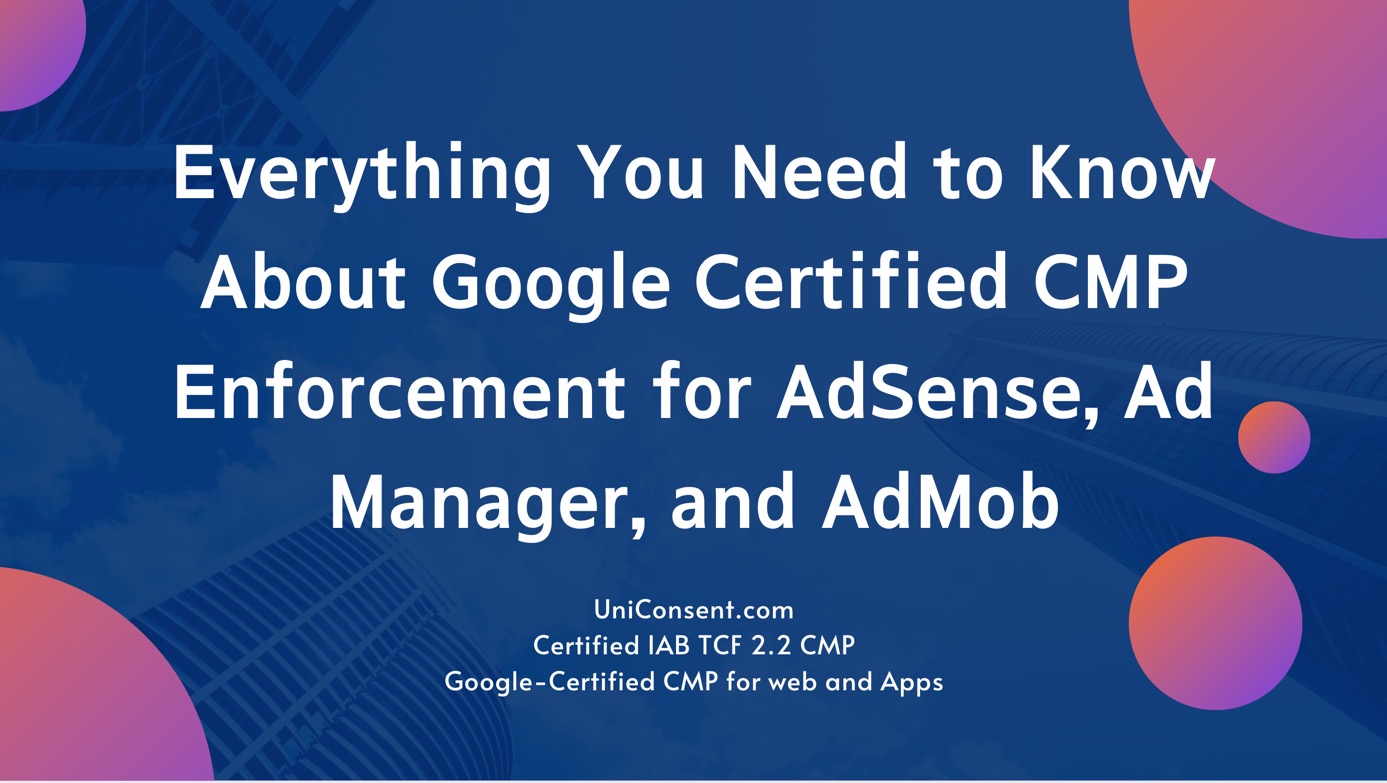 Google-certified CMP for Adsense and Ad Manager AdMob enforcement notifications
Google-certified CMP for Adsense and Ad Manager AdMob enforcement notifications
Google is set to introduce a significant policy change that will impact publishers who serve ads to users in the European Economic Area (EEA) and the United Kingdom (UK). Effective January 16, 2024, Google is mandating the use of a Google-certified Consent Management Platform (CMP) for publishers utilizing its advertising products, including AdSense, Ad Manager, and AdMob. This policy shift is aimed at enhancing data privacy and ensuring compliance with the General Data Protection Regulation (GDPR) requirements.
Understanding Consent Management Platforms (CMPs)
Consent Management Platforms (CMPs) are specialized tools designed to enable website and app developers to collect and manage user consent concerning data processing activities, particularly in the context of targeted advertising. Under regulations like the GDPR, user consent is of paramount importance. Publishers are obligated to provide users with transparent and easily comprehensible information about data collection and processing. Moreover, users must be given the option to either grant or deny consent for these activities.
Google's New CMP Requirement
Commencing on January 16, 2024, Google is instituting a strict requirement that publishers serving ads to users in the EEA and the UK must utilize a Google-certified Consent Management Platform. This mandate extends to Android app developers who monetize their applications through Google's AdMob platform.
Why Is Google Imposing This Requirement?
Google's decision to enforce the use of a CMP among publishers stems from its commitment to ensuring robust data privacy practices. By implementing a CMP, publishers can empower users in the EEA and the UK to have a clear, informed, and autonomous choice concerning how their personal data is used for advertising purposes.
The Enforcement Timeline
It's crucial for publishers to be aware of the timeline for Google's enforcement of this CMP requirement. Enforcement will commence on January 16, 2024, affecting a small percentage of traffic in the EEA and the UK initially. Subsequently, Google will gradually expand this enforcement, with the aim of covering all traffic in these regions by the end of February 2024. Publishers are strongly advised to have a certified CMP in place by the initial enforcement date to ensure that their monetization remains unaffected.
Implications for Android App Developers Using AdMob
Android app developers who rely on AdMob for monetization must pay close attention to Google's CMP enforcement, as it directly affects their revenue and user experience. Here are the key implications for these developers:
1. Compliance is Mandatory
First and foremost, it is imperative for Android app developers serving ads to users in the EEA and the UK to comply with Google's requirement to use a certified CMP. Failure to do so may result in ad serving limitations, negatively impacting monetization efforts.
2. Ad Types and Eligibility
Upon enforcement, if an ad request for EEA or UK traffic is sent to Google and does not use a TCF-certified CMP, the eligibility for personalized and non-personalized ads will be restricted. Only limited ads will be eligible to serve on Ad Manager and AdMob, while no ads will serve on AdSense. It's essential to note that limited ads are significantly more restrictive than non-personalized ads, potentially leading to decreased revenue in the EEA and the UK.
3. Prepare for Transition
To avoid disruptions in monetization and revenue losses, Android app developers should prepare for this transition by ensuring they have a certified CMP in place well before the enforcement deadline of January 16, 2024. This proactive approach will help maintain a smooth user experience and uninterrupted ad serving.
As the January 16, 2024, deadline approaches, it is essential for publishers and app developers to stay informed and take the necessary actions to adapt to these new requirements. Google's commitment to data privacy and user consent underscores the importance of these changes in the evolving landscape of digital advertising.
Benefits of Using UniConsent CMP
To assist publishers in complying with this new requirement, Google has compiled a list of certified CMPs in their Help Center for Ad Manager, AdMob, and AdSense. Among the CMPs available, UniConsent CMP stands out as a powerful and versatile solution. Here are some of the key benefits of using UniConsent CMP:
-
Ease of Setup: UniConsent CMP offers a user-friendly setup process, ensuring that publishers can swiftly integrate it into their websites or apps without significant technical hurdles.
-
Dedicated Technical Support: UniConsent CMP provides technical support to assist publishers with the integration process and address any queries or concerns they may have.
-
Universal CMP Solution: UniConsent CMP is a versatile solution that supports integration with all major ad vendors and technology providers. This universality ensures compatibility with various advertising tools, making it an ideal choice for publishers seeking a seamless and comprehensive solution.
By choosing UniConsent CMP, publishers can streamline their compliance with Google's new CMP requirement while also benefiting from the platform's ease of use and compatibility with a wide range of ad vendors and technology partners.
About UniConsent
UniConsent CMP is a certified CMP by IAB EU, IAB Canada and Google, working with leading publishers and serving tens of millions of users per day to provide a seamless privacy experience for both users and publishers in the post-GDPR era. Contact us to learn more: hello@uniconsent.com
References
Activate Google Consent Mode UniConsent to enhance the accuracy of your Google Analytics and Google Ads conversion data.
Set up Google Consent Mode →Get started to make your website and application compliant for EU GDPR, US CPRA, CA PIPEDA etc
Sign upConsent Management Platform Resources
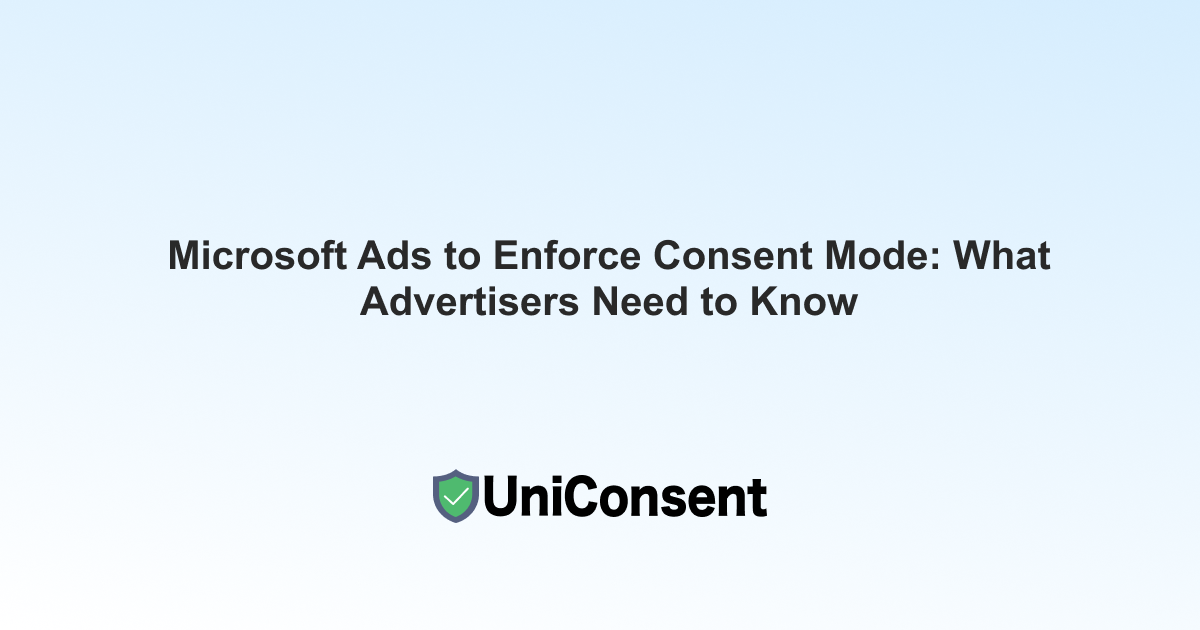
Microsoft Ads to Enforce Consent Mode: What Advertisers Need to Know
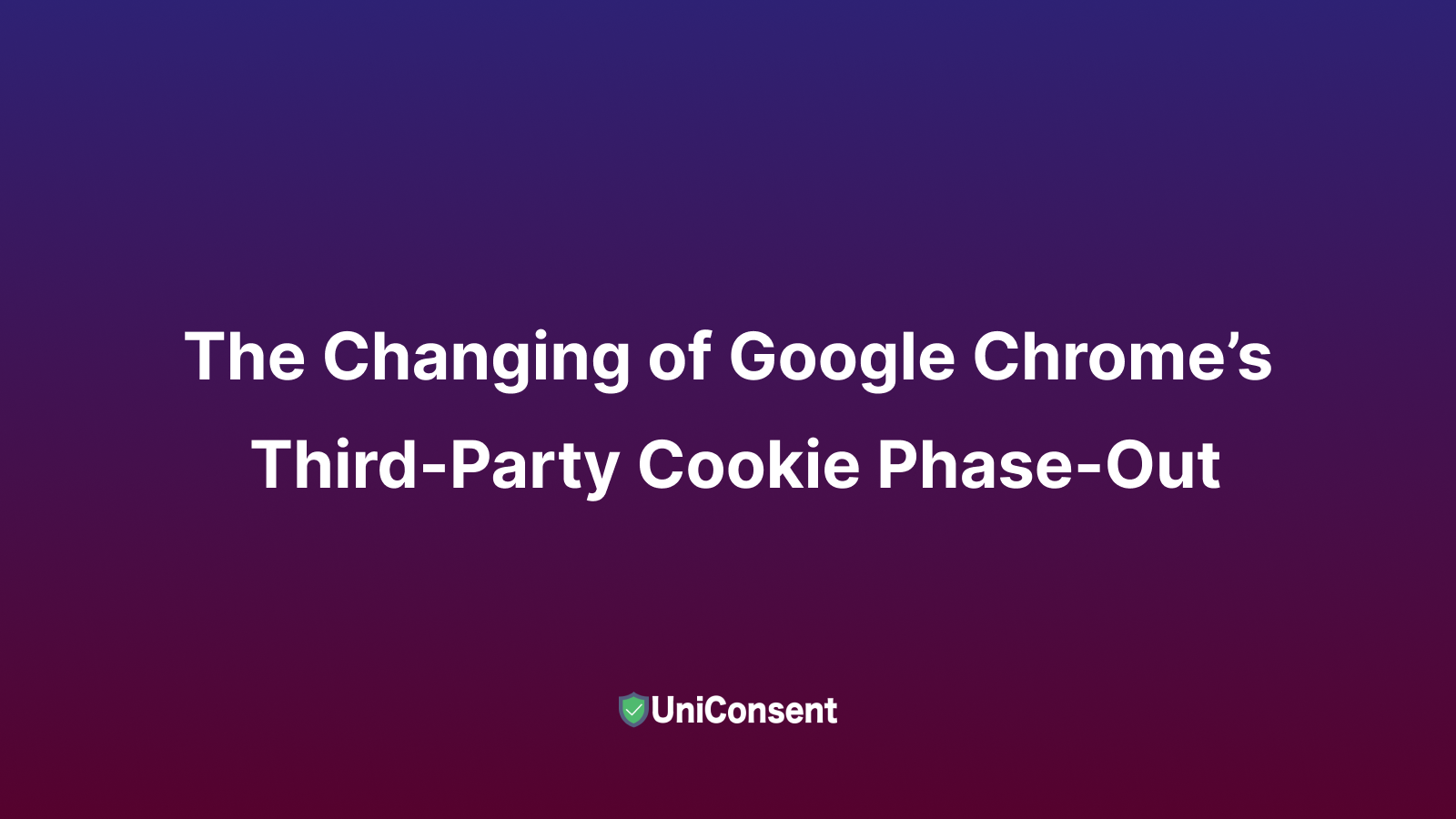
The Changing of Google Chrome’s Third-Party Cookie Phase-Out
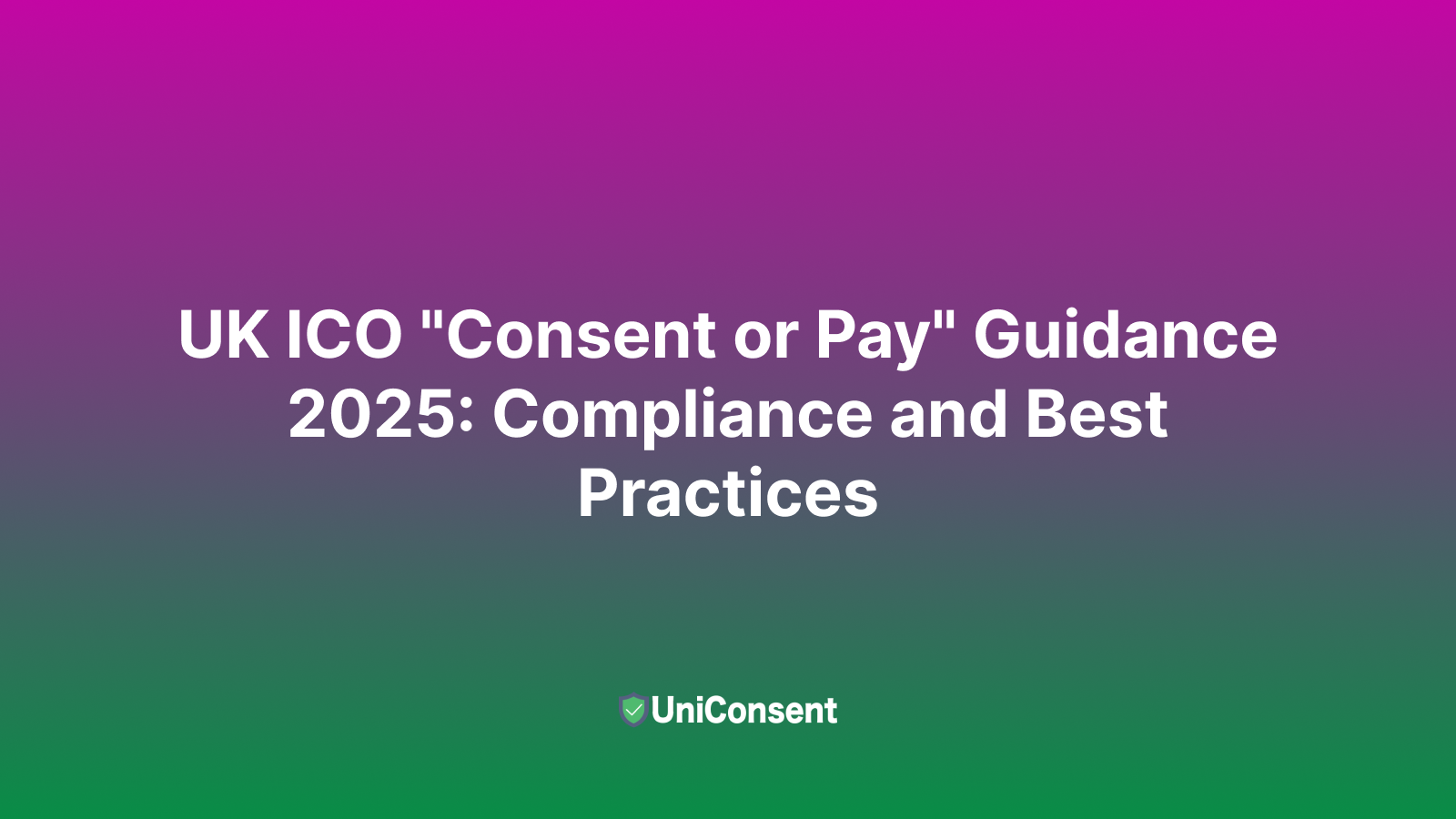
UK ICO "Consent or Pay" Guidance 2025: Compliance and Best Practices
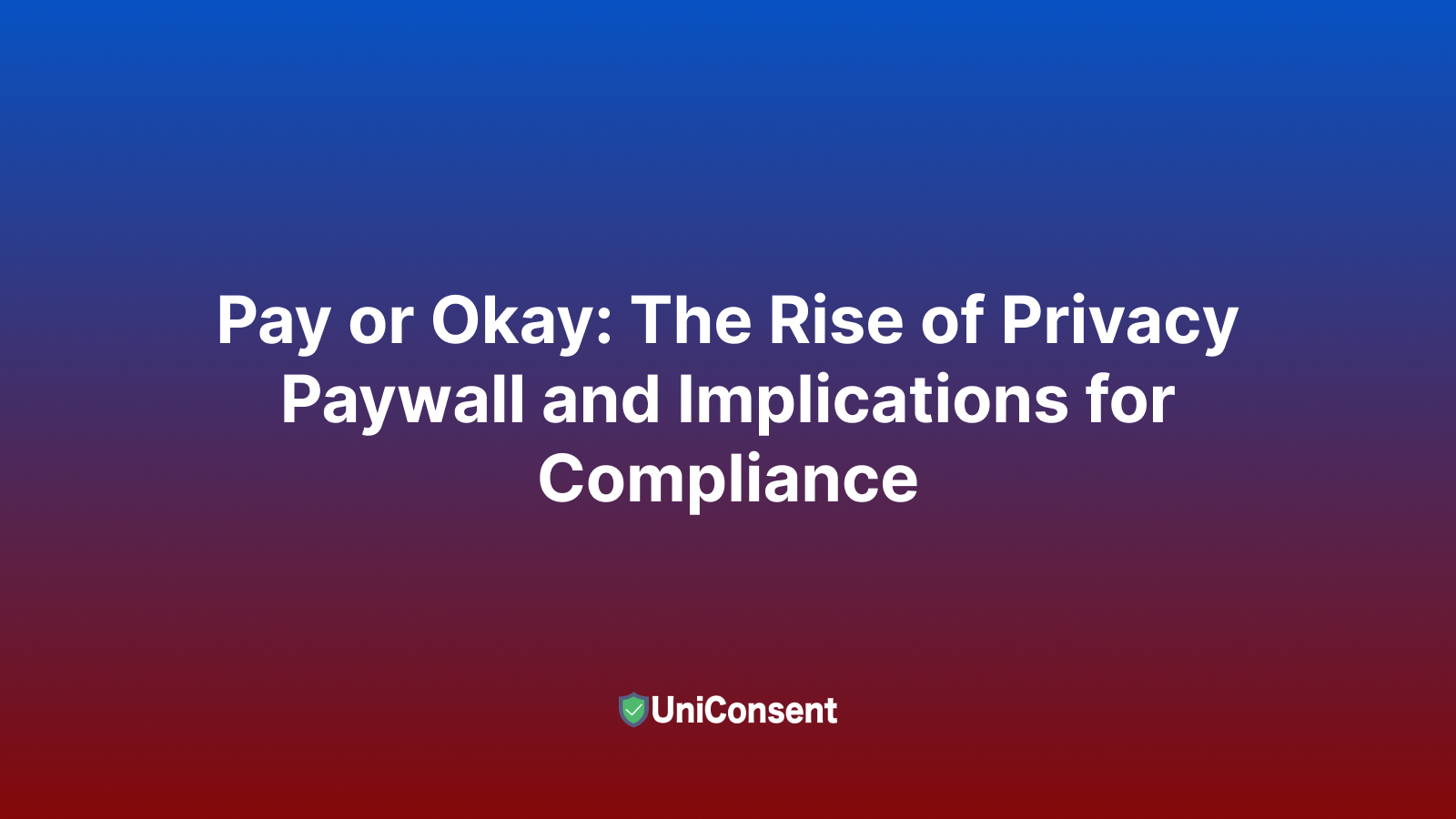
Pay or Okay: The Rise of Privacy Paywall and Implications for Compliance
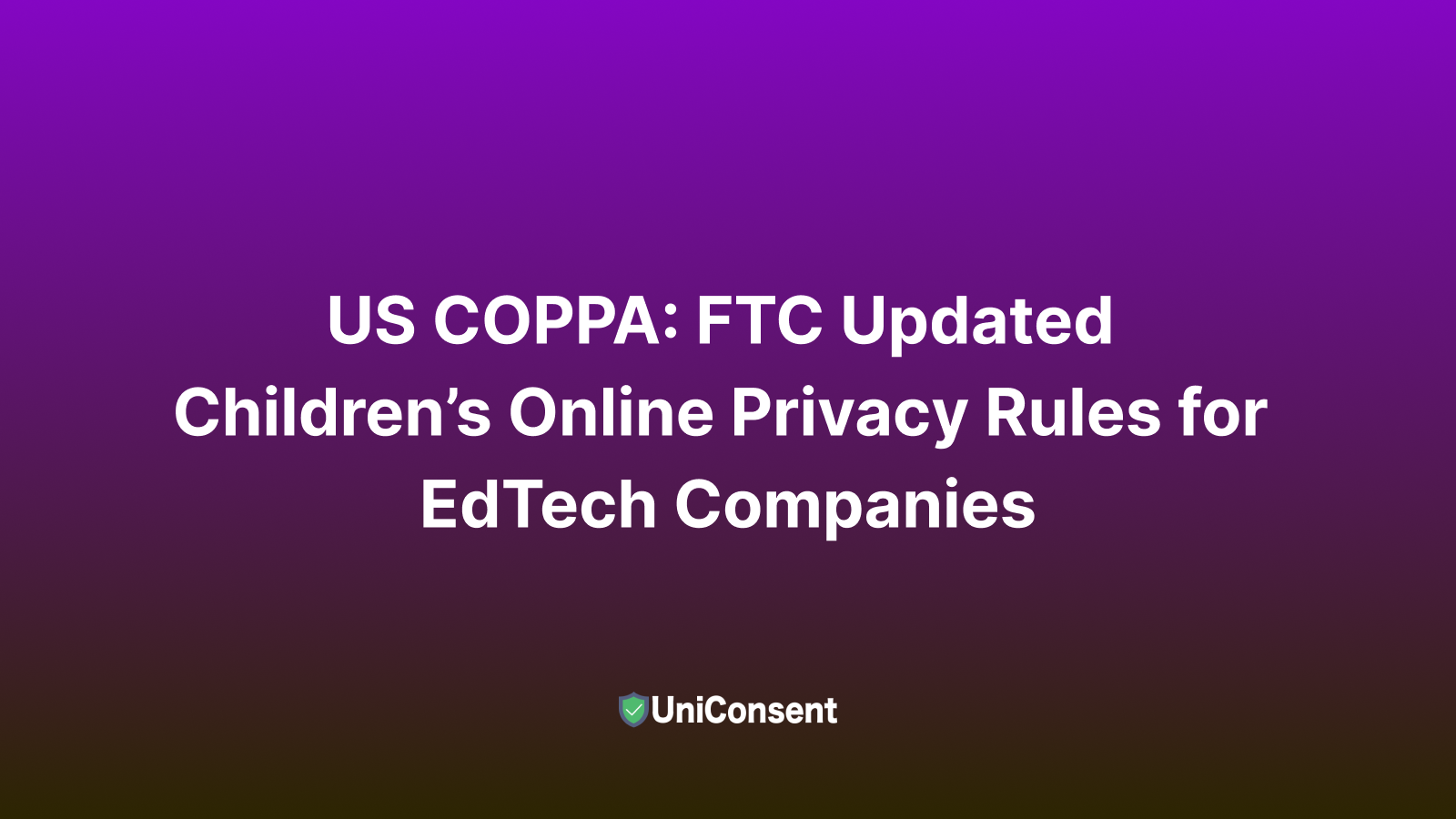
US COPPA: FTC Updated Children’s Online Privacy Rules for EdTech Companies
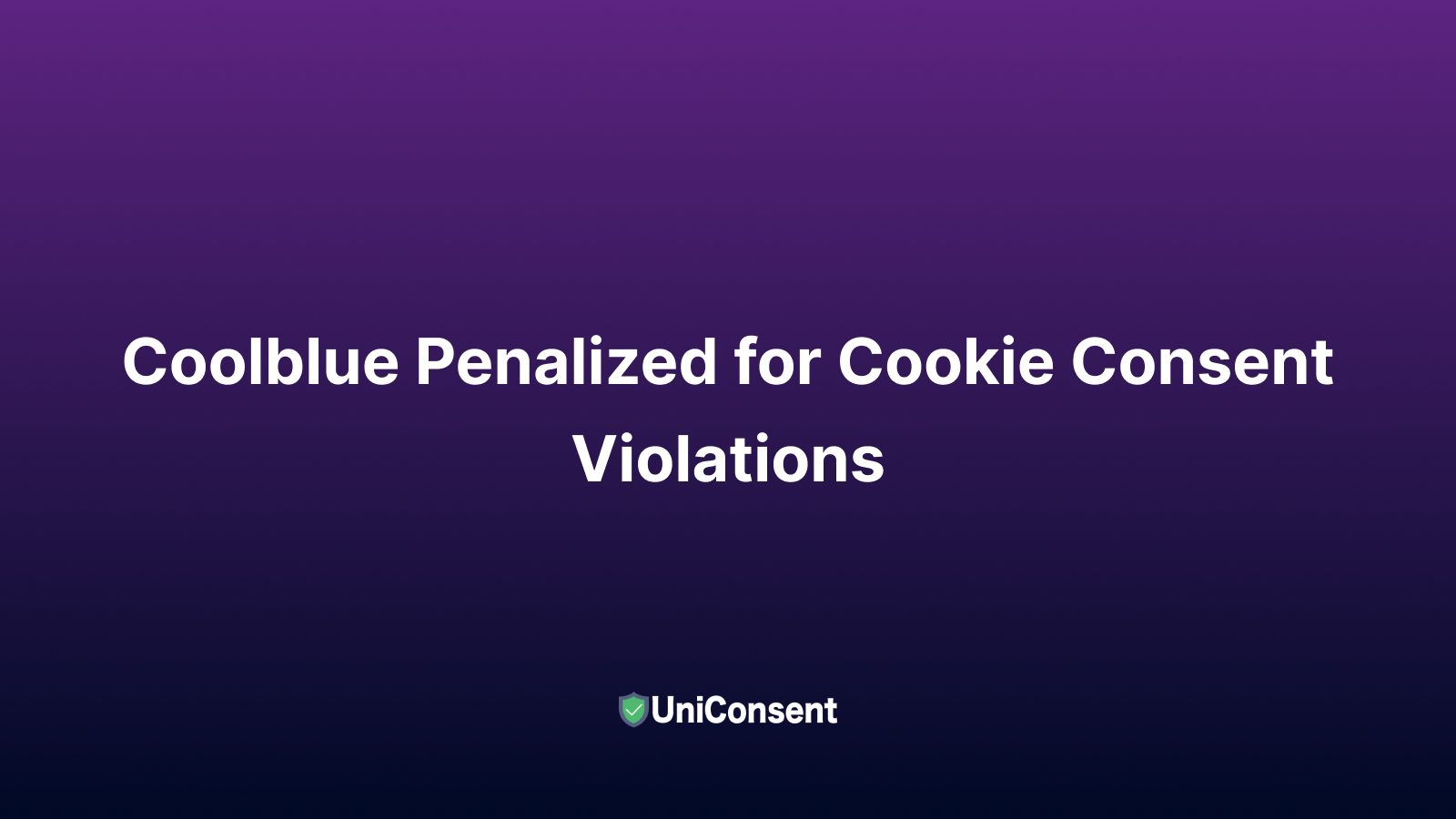
Coolblue Penalized for Cookie Consent Violations
Get started to make your website and application compliant for EU GDPR, US CPRA, CA PIPEDA etc
Sign up